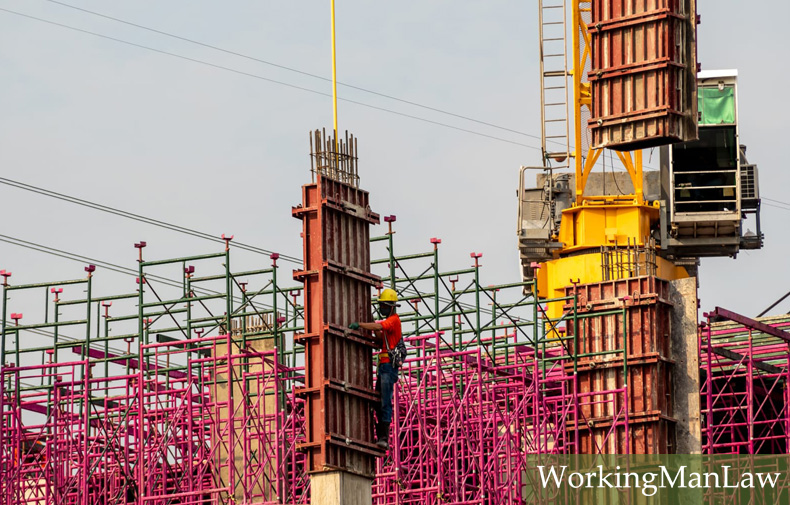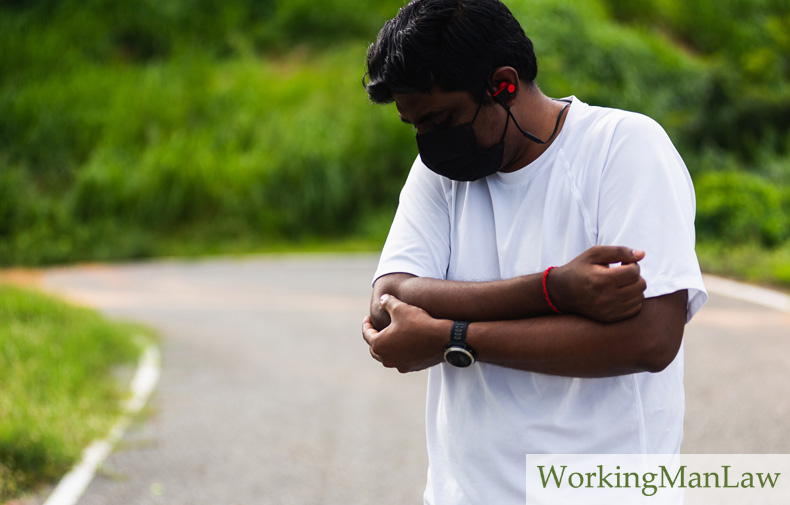
There are countless essential jobs that Coloradoans and Americans as a whole depend on every day. Truck drivers, for instance, deliver much-needed goods and fuel across the country. Farmers and ranchers are essential to producing crops and livestock that eventually end up at your local grocery store.
While many jobs are essential, some have proven to be significantly more deadly and hazardous than the average occupation. The nature of some jobs requires employees to work in harsh conditions, while others are dangerous because of the risk of equipment failure.
The following are some of the most dangerous jobs in Colorado. If you’re injured in one of these professions, you may need a workers’ compensation lawyer to fight for your rights to benefits.
Construction
Construction is often one of the first occupations people think of when asked to name a dangerous job—and for good reason. A study from 2019 revealed that 1 in 5 work-related deaths and serious injuries happen in the construction industry. In fact, it’s considered one of the highest-risk jobs anyone can have.
The biggest dangers include falling, electrocution, struck-by injuries and caught in/between accidents. These are known as the “Fatal Four.” In addition, construction workers frequently lose their hearing or get hit by a car or heavy equipment.
Iron and steelwork
Even the most well-equipped and experienced individuals can suffer from injuries or harm on the job. Hardhats, eye protection, harnesses, gloves and steel-toed boots protect against many hazards. Yet many iron and steelworkers often still fall victim to serious injuries and fatalities each year.
These jobs are physically demanding and take place in hazardous working conditions. Warehouses can be extremely hot in the summer, increasing the risk of heat stroke, dehydration and exhaustion. Also, iron and steelworkers sometimes must work high in the air and operate heavy machinery.
Common injuries include overexertion, muscle strains, exposure to dangerous chemicals, burns and injuries caused by defective tools and equipment.
Fishing and hunting
Fishers and hunters are often categorized together because they both work long hours, often in tough conditions. Fatigue and exposure to the elements can be hard on anyone, which increases the chances of an accident.
In landlocked Colorado, the fishing industry isn’t large, but the hunting industry more than makes up for it. For example, if a hunting guide goes out in the wilderness breaks an ankle, which is not usually considered a serious injury, the situation can quickly become serious due to the remote nature of the job and the fact that it will take longer to receive medical attention.
Logging
Logging has always been considered a dangerous job. Like hunters, loggers risk being exposed to the natural elements. They also are in danger of rolling or falling timber, as well as the risk of operating heavy machinery that can lead to serious, or even fatal, injuries.
Data shows that loggers are also more susceptible to occupational diseases like chronic muscle pain and joint or back pain due to tasks that require repetitive motion.
Commercial driving
Fatalities among delivery drivers, truck drivers and sales workers have increased rapidly in recent years as Colorado roads get busier and busier. Nationally, almost 1 out of every 5 fatalities among workers were drivers for various businesses. They’re among the highest rates for auto accidents.
People who drive for their job can also be injured while loading and unloading cargo. Back injuries, heart disease, obesity and exposure to harmful chemicals are common as well.
Flying
Flying and maintaining any aircraft requires a high degree of skill. Aircraft pilots and flight engineers are well-trained to handle issues while flying; they must be quick to respond in the case of an emergency. For this reason, aviation accidents and injuries are not as common as in other professions, like construction.
However, the stakes are high, and a single malfunction can result in a deadly plane crash, which is why flying is still considered one of the most dangerous jobs.
Roofing
Like hunting and fishing, roofers tend to work long hours exposed to extreme heat or cold. While they’re not as high in the sky as pilots, roofers still work from great heights. If they’re not careful, they could slip and fall and break bones.
Even if they’re on the ground, equipment or debris falling from above could hit their heads or knock them down. Roofers also commonly report higher rates of heat stroke and back injuries.
Farming
People who love to work with their hands often enjoy making a living on a farm or ranch, but it’s also hard, back-breaking work. Farmers and ranchers are at risk for heat strokes, hearing loss and farm equipment accidents.
Tool and equipment defects can also lead to serious injuries and even death. One of the leading causes of fatalities on farms are transportation accidents and tractor rollovers.
No matter your occupation, if you or someone you love has suffered from a workplace injury, contact an experienced workers’ compensation attorney right away.


